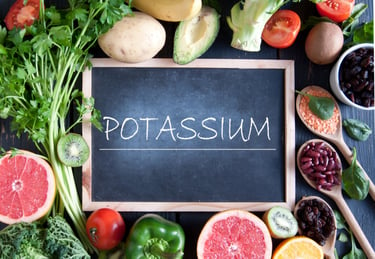eStoreRx™
Online Supplement Dispensary
eStoreRx™ is an easy direct-to-patient ordering & fulfilment program for lifelong wellness.
For over 40 years, Biotics Research Corporation has revolutionized the nutritional supplement industry by utilizing “The Best of Science and Nature”. Combining nature’s principles with scientific ingenuity, our products magnify the nutritional
eStoreRx™ is an easy direct-to-patient ordering & fulfilment program for lifelong wellness.
Biotics Research is proud to expand our commitment to education with the Wellness Unfiltered Pro Podcast. Each episode delves into key health topics and the clinical applications of our premier products. Through candid, insightful conversations, our team offers practical guidance to keep you informed and empowered as a healthcare professional.
February 12 2026
The results of a randomized, double-blind, placebo-controlled trial describing the effects of taurine supplementation on blood pressure and vascular f...
 Researchers from Italy, Sweden and the USA reviewed the observational cohort studies addressing the relation between potassium intake and the incidence or mortality of total stoke or stroke subtypes published through August 6, 2016.Researchers carried out a meta-analysis of 16 cohort studies based on the relative risk (RR) of stroke, comparing the highest versus lowest intake categories. They also plotted for blood pressure. Relative to the lowest category of potassium intake, the highest category of potassium intake was associated with a 13% reduced risk of stroke in the blood pressure-adjusted analysis. Summary RRs tended to decrease when original estimates were unadjusted for blood pressure. Analysis for stroke subtypes yielded comparable results. Researchers concluded that their meta-analysis shows an inverse associating between potassium intake and risk of total, hemorrhagic, and ischemic stroke, with the lowest risk occurring at a potassium intake of around 90 mmol (≈3,500 mg) per day. They also suggest that the mechanisms by which potassium intake may affect stroke risk can only partially be explained by an effect on blood pressure, particularly for ischemic stroke and in females. Interestingly, the new Recommended Daily Intake (RDI) for potassium has been increased to 4,700 mg!
Researchers from Italy, Sweden and the USA reviewed the observational cohort studies addressing the relation between potassium intake and the incidence or mortality of total stoke or stroke subtypes published through August 6, 2016.Researchers carried out a meta-analysis of 16 cohort studies based on the relative risk (RR) of stroke, comparing the highest versus lowest intake categories. They also plotted for blood pressure. Relative to the lowest category of potassium intake, the highest category of potassium intake was associated with a 13% reduced risk of stroke in the blood pressure-adjusted analysis. Summary RRs tended to decrease when original estimates were unadjusted for blood pressure. Analysis for stroke subtypes yielded comparable results. Researchers concluded that their meta-analysis shows an inverse associating between potassium intake and risk of total, hemorrhagic, and ischemic stroke, with the lowest risk occurring at a potassium intake of around 90 mmol (≈3,500 mg) per day. They also suggest that the mechanisms by which potassium intake may affect stroke risk can only partially be explained by an effect on blood pressure, particularly for ischemic stroke and in females. Interestingly, the new Recommended Daily Intake (RDI) for potassium has been increased to 4,700 mg!
Vinceti M, et al. Meta-Analysis of Potassium Intake and the Risk of Stroke. J of the Am Heart Assoc. 2016;5:e004210 doi:10.1161/JAHA.116.004210
Submit this form and you'll receive our latest news and updates.
*These statements have not been evaluated by the Food and Drug Administration. This product has not intended to diagnose, treat, cure, or prevent any disease.
© 2025 Biotics Research Corporation - All Rights Reserved
Submit your comment